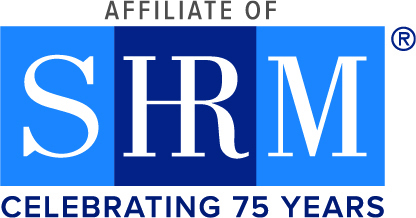2023 Employment Law Changes in review
Throughout the year, on our social page, we presented potential and actual employment law changed in 2023, SHRM has published a recap, so let's run through the year:
Affirmative action was not upheld in higher education admissions
- Court or Administrative source: Supreme Cour
- When: June 29, 2023
- HR Impact: Your business should still advocate for inclusive workplaces and diverse workforces. The US population is changing, and organizations need to adapt to continue to recruit candidates to support the business.
Employers can deny religious accommodations to employees only if substantial negative impact can be demonstrated.
- Court or Administrative source: Supreme Court
- When: June 29, 2023
- HR Impact: Review your religious accommodation policy, including holiday, prayer time, and holy days, in the context of “substantial increased costs to operations”
Coercive policies can establish an environment in which employees do not feel free to organize, and this can be subject to legal action
- Court or Administrative source: NLRB Ruling
- When: August 2, 2023
- HR Impact: Employers should review their handbooks for coercive directives that may prohibit employees from communicating and organizing or establish a culture where they don't feel free to organize. The reason for the coercive policy may be irrelevant (e.g., prohibiting discourse during an investigation).
There is a shorter, streamlined I-9
- Court or Administrative Body: US Citizenship and Immigration Services (USCIS)
- When: July 21, 2023
- HR Impact: You can use the new form as of August 1. 2023, and the old form shouldn’t be used past October 31, 2023. Also, remote workers onboarded remotely should be physically verified.
Many states have outlawed noncompete agreements
- Court or Administrative Source: State legislatures
- HR Impact: Check the laws in your state if you require NCAs. Non-competes are currently enforceable in Ohio, but they must be reasonable. The tide of change is against NCA’s so it would make sense to review risks to eliminating them.
Overtime pay would apply to any worker with a standard salary up to $55,068 annually.
- Court or Administrative source: Department of Labor
- August 30, 2023-proposed rule was published
- HR Impact: Review your payroll and financial impact if this threshold increases from $35,568 (a 54% increase!!
The times the are a-changing! SHRM and PCHRA will keep you informed so you can make the legal and right decision for your business!
Supreme Court, NLRB Decisions Changed Employment Law in 2023 (shrm.org)
Lori G. Fisher, PMP, PCHRA Social Media Chair







Member Comments
What a great service. Thanks for providing this information. Many of these changes are definately something we need to stay on top of. . .
— Diane DeRubertis on January 5, 2024 at 4:47pm